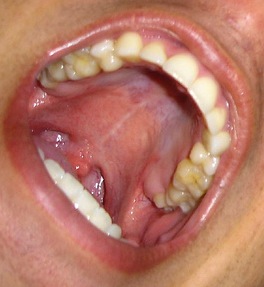7. Consonant clusters ending with s
|

Imagen en Flickr de Travis Hornung bajo licencia CC |

These are the consonant clusters that end with an "s", representing either the sound /z/ or /s/ at the end of a plural noun, for example:
| nts |
/nts/ |
plants, accounts, rents |
| rds | /rdz/ |
records, birds, cards, chords |
| rs | /rz/ |
colours, rivers, sisters |
| ps, pes, ts, tes, ks... |
/ps,/ /ts/, /ks/ |
sweets, oats, boats, stops, lamps, writes, tests, texts, links |
| mes, ms, ns, ngs, ls... |
/mz/, /nz/, /ŋz/, /lz/ | homes, storms, cleans, fans, lungs, rings, girls, thrills |
| fs, ghs, ths... |
/fs/, /θs/ | beliefs, laughs, gulfs, cliffs, deaths, myths, births |
| ves, thes... |
/vz/, /ðz/ | leaves, knives, wolves, valves, saves, clothes, breathes, bathes |
| bs, ds, gs... |
/bz/, /dz/, /gz/ | rubs, bulbs, needs, holds, worlds, thousands, pigs, legs |
Adding an "s" sound at the end of a word makes it easier for us to say the next sound if it's a consonant sound. When continuing the speech with another word, these consonant-consonant sounds flow together well. Why does this happen? Because after making these sounds, your mouth and tongue are in a fairly neutral position and ready to make any sound. Try saying /z/ and /s/ separately. Where is your tongue? Where are you lips? In what position does your mouth end up after saying each sound? Now try saying the words below together. Compare this to saying /t/, or any word with /t/ at the end. After saying /t/ your tongue is right behind your teeth, fully committed to the sound, and in a bad starting position to make the next sound.
The importance of /z/ and the very similar/s/ as linking sounds in connected speech in English cannot be overstated. These linking sounds occur very frequently in English because of grammar rules to do with using "s". If you think about it, we use "s" as a letter at the end of words far more frequently than we do other letters, simply because of the following grammar rules:
1. "s" is added to the end of most nouns to make them plural, e.g. "one cat, two cats", or "one knife, two knives"
2. "s" is added to the end of nouns (after an apostrophe) to indicate possession, e.g. "John's car", or "the girl's book"
3. "s" is added to the end of verbs to make the third form, e.g. "I read, he reads", or "you put", "she puts". It is also worth noting the "s" endings of the third form of the four most common verbs in English (the first three of which are also very common auxiliary verbs):
BE Third Form: he is, she is, it is and the contractions he's, she's, it's
HAVE Third Form: he has, she has, it has and the contractions he's, she's, it's
DO Third Form: he does, she does, it does
GO Third Form: he goes, she goes, it goes
Can you imagine what would happen if we used /t/ instead of /z/ or /s/ as a linking sound in each of these situations? The consonant sound /t/ is often dropped at the ends of words, because it is difficult to pronounce together with another consonant sound. If we used it in the above rules instead of/z/ or /s/ (which connect well with all other consonant sounds) the phrases produced would be much harder to say, because they wouldn't flow together well. For example, we would have to say: "John't car", instead of "John's car", which would make a problem because the /t/ sound at the end of "John't" wouldn't flow well with the next consonant sound (the /k/ sound at the beginning of "car"). Or what about "she't going", instead of "she's going"? Again, it would be much harder to pronounce. In fact the result would be tongue-twisting on a massive scale! In the same way, having to pronounce "he readt bookt", instead of "he reads books" wouldn't flow, because /t/ - or indeed any other consonant sound - wouldn't enable the same easy flow that we achieve by using /z/ or /s/.
A final consonant cluster that frequently gets reduced down to a mere /-s/ is "sts". It is the final cluster in words that end in /-st/ for example list or words with -ist suffixes like aerialist. Because we want the triple cluster /-sts/, we'll focus on the plurals or verb forms that end with /s/, such as lists, arborists, coexists, journalists. The same happens with other clusters like it such as /-sps/ and /-sks/.
A few examples include:
masts, tests, masks, desks, asks, asonists, cellists....
Para saber más
Try to say this tongue twister:
Amidst the mists and coldest frosts
With barest wrists and stoutest boasts
He thrusts his fists against the posts
And still insists he sees the ghosts.